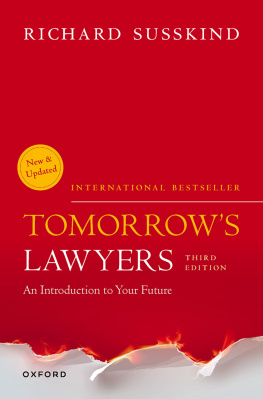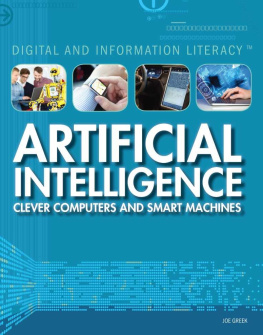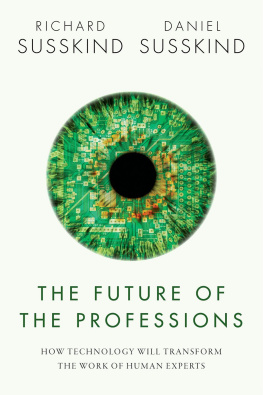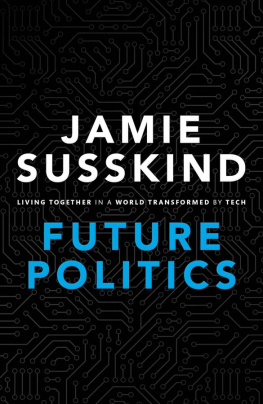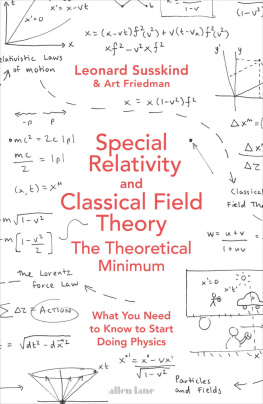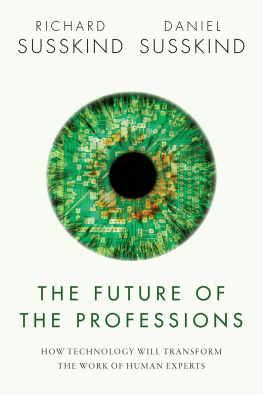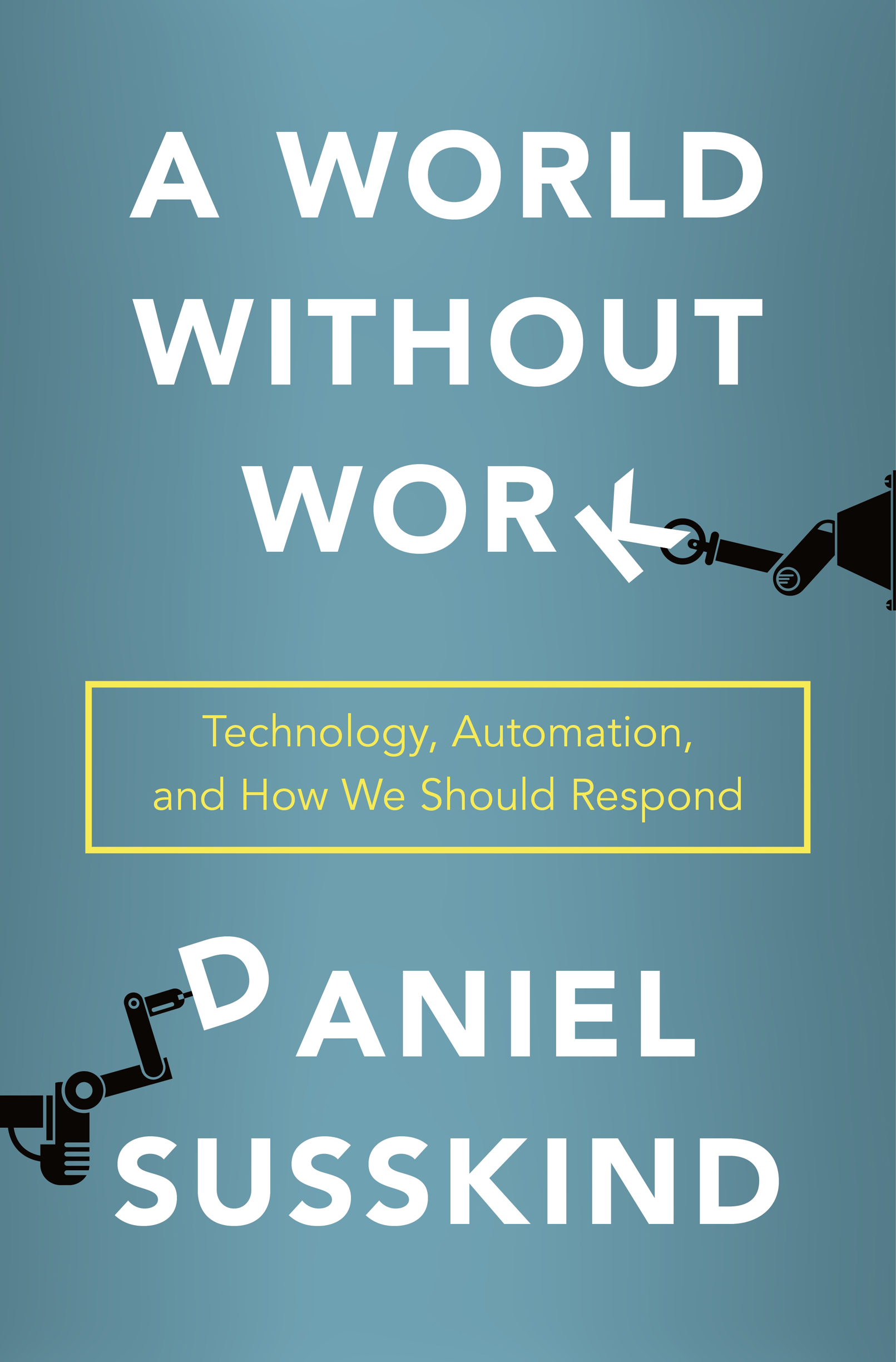The author and publisher have provided this e-book to you for your personal use only. You may not make this e-book publicly available in any way. Copyright infringement is against the law. If you believe the copy of this e-book you are reading infringes on the authors copyright, please notify the publisher at: us.macmillanusa.com/piracy.
I wrote much of this book at Balliol College, Oxford. I would like to thank all my friends and colleagues therein particular David Vines, James Forder, and Nicky Trottwho have made it such a happy and productive intellectual home from which to work. Balliol is a special place, and it has been a privilege to be part of the community for so long.
I would also like to thank my brilliant literary agents, Georgina Capel, Rachel Conway, and Irene Baldoni, for their support and encouragement. I have felt spoiled to work with two formidable editors in writing this book: Laura Stickney and Grigory Tovbis, who have been relentlessly helpful, insightful, and supportive. Thank you to the rest of the team as wellHolly Hunter, Isabel Blake, Will OMullane, Olivia Andersen, and Anna Herv at Allen Lane, and Maggie Richards, Jessica Wiener, Carolyn OKeefe, and Christopher OConnell at Metropolitan. And particular thanks to Sara Bershtel, for her confidence in my work and for taking me on in the first place.
Special thanks must go to Daniel Chandler, Arthur Hughes-Hallett, and Tom Woodward, for reading and commenting on the manuscript so carefully and thoughtfully at various stages. Thank you to Alex Canfor-Dumas, Josh Glancy, and Owain Williams for so often discussing the ideas in this book with me over the years; to Jane Birdsell and Muriel Jorgensen, who copyedited the book and saved me from numerous embarrassments; and to Rebecca Clark for fact-checking the manuscript. And many thanks to all my other studentsour conversations are an ongoing source of inspiration.
A very warm thank you to my parents-in-law, Thomas and Jules Hughes-Hallett, whose study in Suffolk became an empty-tea-cup-ridden writing refuge for me on countless stays.
The biggest thanks must go to my fellow Susskinds. My mum, Michelle, is my biggest supporter in life; her continual guidance and encouragement helped me so much in writing this book. My sister, Ali, was always on hand to offer her wisdom, advice, and inimitable humor. And I thank my brother, Jamie, the smartest and most capable person I know, who pored over these pages for me several times, and whose judgment I trust more than anyones.
Then there is my dad, Richard. In his recent book, Jamie wrote that he did not have the words to describe what he owes to our dad and his gratitude to him. I feel much the same way. I was so hugely proud to write my first book with him. And though his name is not on the cover on this book, his influence is in every chapter, as will be plain to any reader. No son could have a better dad than mine, and I feel so lucky to have him in my corner. Thank you, dad.
And finally, Grace and Rosa, the two loves of my life. Thank you so much for being there with me along the way (Rosa, for the second half of the journey). This book, and everything that I do, is dedicated to you both.
The Great Manure Crisis of the 1890s should have come as no surprise.
With these horses came manureand lots of it. A healthy horse produces somewhere between fifteen and thirty pounds of manure a day, almost the weight of a two-year-old child.
It is said that policymakers did not know what to do. The Great Manure Crisis was over.
The Parable of Horseshit, as Elizabeth Kolbert called it in the New Yorker, has been told many times over the years.
Today, the world is gripped again by Leontiefs fear. In the United States, 30 percent of workers now believe their jobs are likely to be replaced by robots and computers in their lifetime. In the UK, the same proportion think it could happen in the next twenty years. And in this book, I want to explain why we have to take these sorts of fears seriouslynot always their substance, as we shall see, but certainly their spirit. Will there be enough work for everyone to do in the twenty-first century? This is one of the great questions of our time. In the pages that follow, I will argue that the answer is no and explain why the threat of technological unemployment is now real. I will describe the different problems this will create for usboth now and in the futureand, most important, set out how we might respond.
It was John Maynard Keynes, the great British economist, who popularized the term technological unemployment almost fifty years before Leontief wrote down his worries, capturing in a pithy pairing of words the idea that new technologies might push people out of work. In what follows, I will draw on many of the economic arguments that have been developed since Keynes to try to gain a better look back at what happened in the past, and a clearer glimpse of what lies ahead. But I will also seek to go well beyond the narrow intellectual terrain inhabited by most economists working in this field. The future of work raises exciting and troubling questions that often have little to do with economics: questions about the nature of intelligence, about inequality and why it matters, about the political power of large technology companies, about what it means to live a meaningful life, about how we might live together in a world that looks very different from the one in which we have grown up. In my view, any story about the future of work that fails to engage with these questions as well is incomplete.
NOT A BIG BANG, BUT A GRADUAL WITHERING
An important starting point for thinking about the future of work is the fact that, in the past, many others have worried in similar ways about what lies aheadand been very wrong. Today is not the first time that automation anxiety has spread, nor did it first appear in the 1930s with Keynes. In fact, ever since modern economic growth began, centuries ago, people have periodically suffered from bouts of intense panic about being replaced by machines. Yet those fears, time and again, have turned out to be misplaced. Despite a relentless flow of technological advances over the years, there has always been enough demand for the work of human beings to avoid the emergence of large pools of permanently displaced people.
And so, in the first part of the book, I begin with this history, investigating why those who worried about being replaced by machines turned out repeatedly to be so wrong, and exploring how economists have changed their minds over time about the impact of technology on work. Then I turn to the history of artificial intelligence (AI)a technology that has captured our collective imagination over the last few years, and which is largely responsible for the renewed sense of unease that many now feel about the future. AI research, in fact, began many decades ago, with an initial burst of enthusiasm and excitement, but that was followed by a slump into a long, deep winter when little progress was made. In recent years, though, there has been a rebirth, an intellectual and practical revolution that caught flat-footed many economists, computer scientists, and others who had tried to predict which activities machines could never do.
In the second part of the book, building on this history, and trying to sidestep the intellectual mistakes that others have made before, I explain how technological unemployment is likely to unfold in the twenty-first century. In a recent survey, leading computer scientists made the claim that there is a 50 percent chance that machines will outperform human beings at every task within forty-five years. But the argument I make does not rely on dramatic predictions like this turning out to be true. In fact, I find it hard to believe that they will. Even at the centurys end, tasks are likely to remain that are either hard to automate, unprofitable to automate, or possible and profitable to automate but which we will still prefer people to do. And despite the fears reflected in those polls of American and British workers, I also find it difficult to imagine that many of todays jobs will vanish completely in years to come (to say nothing about new types of jobs that await in the future). Much of that work, I expect, will turn out to involve some tasks that lie beyond the reach of even the most capable machines.


